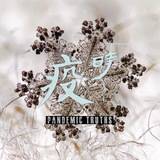其中一些應用——例如改造蚊子以抵抗導致瘧疾的寄生蟲——實際上涉及到對生態系統的修補。因此,#CRISPR 引發了許多社會 #倫理 和安全方面的擔憂。一些人還擔心,國防組織正在探索的涉及 「負責任的基因創新編輯」 的應用可能會向其他國家發出令人擔憂的信號。—— 人們也越來越擔心基因編輯可能被用於 #生物武器 的研發。
2016年,#比爾蓋茨 (#BillGates) 曾表示,下一次的流行病可能源自恐怖分子的電腦屏幕,他們意圖利用基因工程製造合成版的 #天花 #病毒。
最近,在 2017 年 7 月,英特爾健康與生命科學 (Intel Health & Life Sciences) 的約翰·索托斯 (John Sotos) 表示,基因編輯研究可能 「為生物武器帶來難以想象的破壞性潛力」。
Some of these applications – such as the engineering of mosquitoes to resist the parasite that causes malaria – effectively involve tinkering with ecosystems. CRISPR has therefore generated a number of ethical and safety concerns. Some also worry that applications being explored by defence organisations that involve "responsible innovation in gene editing" may send worrying signals to other states. Concerns are also mounting that gene editing could be used in the development of biological weapons. In 2016, Bill Gates remarked that "the next epidemic could originate on the computer screen of a terrorist intent on using genetic engineering to create a synthetic version of the smallpox virus". More recently, in July 2017, John Sotos, of Intel Health & Life Sciences, stated that gene editing research could "open up the potential for bioweapons of unimaginable destructive potential".
https://phys.org/news/2017-08-crispr-biological-weapon.html
#Bioweapon #Crisis #危機 #Catastrophe #災禍 #Ethic #倫理
2016年,#比爾蓋茨 (#BillGates) 曾表示,下一次的流行病可能源自恐怖分子的電腦屏幕,他們意圖利用基因工程製造合成版的 #天花 #病毒。
最近,在 2017 年 7 月,英特爾健康與生命科學 (Intel Health & Life Sciences) 的約翰·索托斯 (John Sotos) 表示,基因編輯研究可能 「為生物武器帶來難以想象的破壞性潛力」。
Some of these applications – such as the engineering of mosquitoes to resist the parasite that causes malaria – effectively involve tinkering with ecosystems. CRISPR has therefore generated a number of ethical and safety concerns. Some also worry that applications being explored by defence organisations that involve "responsible innovation in gene editing" may send worrying signals to other states. Concerns are also mounting that gene editing could be used in the development of biological weapons. In 2016, Bill Gates remarked that "the next epidemic could originate on the computer screen of a terrorist intent on using genetic engineering to create a synthetic version of the smallpox virus". More recently, in July 2017, John Sotos, of Intel Health & Life Sciences, stated that gene editing research could "open up the potential for bioweapons of unimaginable destructive potential".
https://phys.org/news/2017-08-crispr-biological-weapon.html
#Bioweapon #Crisis #危機 #Catastrophe #災禍 #Ethic #倫理
phys.org
Could CRISPR be used as a biological weapon?
The gene editing technique CRISPR has been in the limelight after scientists reported they had used it to safely remove disease in human embryos for the first time. This follows a "CRISPR craze" over ...
